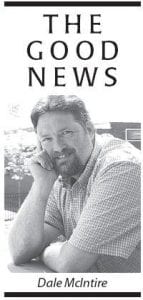A few days before Jesus entered Jerusalem for the last time; a few days before he stood before the Roman governor and an angry mob for daring to challenge the status quo; a few days before he was condemned and beaten and crucified for loving God and people selflessly and sacrificially, Jesus walked into the river town of Jericho and changed a man’s life forever.
The man sat near the gate of the city on the road that rises from the banks of the Jordan River past the date palm plantations and dusty ruins of cast off lives from long ago. The caravans plodded up this road headed from east to west, from the ends of the earth, through Jericho to Jerusalem and beyond. Taxpayers and tax collectors traveled the road, merchants and murderers, peasants and kings. People came and people went, day after long, hot, wearisome day, but still the old blind man sat begging by the gate, inwardly grateful for the iron and copper coins, a shekel here, a denarius there, a mite in between.
He sat by the road near the gate shrouded in darkness and yesterday’s memories . . . memories of when he could see. Memories of color coordinated sound and sight. The faces of his children, his wife, now gone, all of them, leaving him alone in this unwanted reverie. Fuchsia and golden colors of flowers held aloft by green against the clear blue skies. Memories, faded, less certain, remnants left to plague him in his old age.
His ears, his hearing more acute in the years since the accident stole his vision, his ears picked up the noise of the crowd long before the rumble of their feet reached his hands through the stony ground. Thiswas no caravan.
There was no tinkle of bridle bells. No cracking of whips. No shouts of children pleading for tidbits from weary travelers. This was something different. Something very, very different.
He felt the words rising from his heart before he wrapped his tongue around them. “Hey, what’s going on? What’s happening? Why such a crowd? What does this mean?”
At first they ignored him. Nothing new there, he thought. Multitudes ignore the plight of the needy among them, much to their shame. Did he have any control over an exploding pot that spewed its boiling innards in his eyes? Was it his fault? Did they really have to blame him for his predicament?
Couldn’t they have a little mercy? Couldn’t they realize their lives were only a moment from disaster themselves?
He caught himself just before the wave of bitterness and self-pity swept him away. “I said, ‘What does all this mean?'” he shouted. The crowd had gotten his attention. He got the crowd’s attention. “Jesus of Nazareth is passing by,” they said.
Jesus? Of Nazareth? The teacher? The feeder? The healer!? “Jesus, Son of David, have mercy on me!”
The cry erupted from his soul. He had heard of Jesus, heard of the compassion, heard of the miracles.
The crowd returned to its boorish attempt to silence and ignore him, to return him to the cast aside status of yesterday, but it was not yesterday. It was today, and today Jesus was passing by.
He called all the louder, “Jesus, Son of David, have mercy on me.”
Jesus heard him, stopped the parade of onlookers, wellwishers, ambitious politicians and eager saints that accompanied him. He commanded the old blind man be brought to him. Then Jesus spoke to the man.
“What do you want me to do for you?” Jesus asked.
Can you imagine? What would you answer to such a man? “Lord, let me recover my sight.”
Jesus said, “Recover your sight; your faith has made you whole.”
And immediately he recovered his sight and followed him, glorifying God. And all the people, when they saw it, gave praise to God (Luke 18:43).
The blind man who could not see with his eyes and the people who could not see with their hearts were both healed by the compassion of and love of the Son of God, who was himself on his way to give his life for them all.
That’s the Good News.
Pastor Dale McIntire has served as pastor of the Cornerstone Community Church in Grand Marais since April of 1995.



Loading Comments